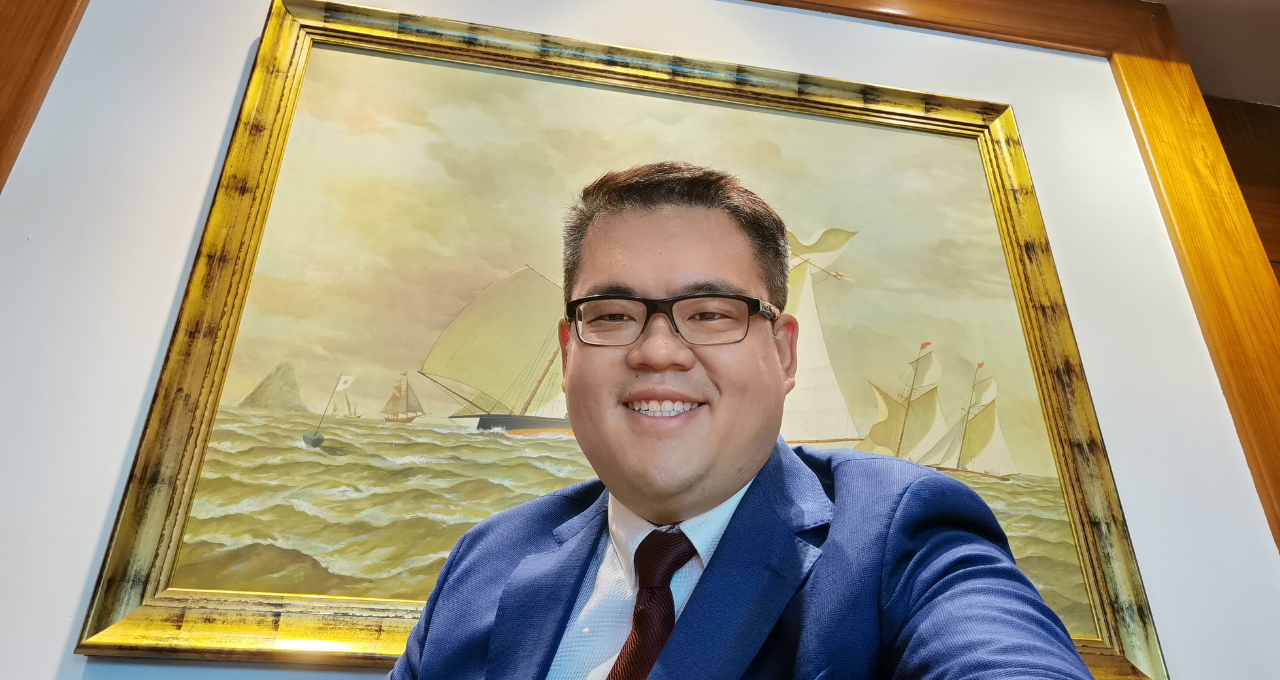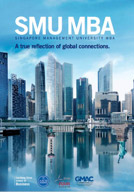
Firearms generally have a bad rap — they are often perceived as forces of destruction or the protagonists of polarised debate. However, for SMU MBA graduate Marko Lim, an early exposure to weapons triggered a much more benign interest in the analytical and imaginative world of engineering.
His first encounter with a gun was as a member of the National Cadet Corps in Secondary School, where he was given the opportunity to visit a firing range and fire his first gun (an M16 rifle) — at the tender age of 14.
“I became very interested in how weapons worked, and I would go to the library to look all these things up,” he remembers.
Marko studied electrical and electronic engineering during his undergraduate studies and sought out an internship with ST Engineering because it was the only weapons manufacturer in Singapore. Assigned to the weapons and electronics department, he learned how to apply his knowledge of electronics to the domain of weaponry.
After graduating, he joined ST Engineering as an engineer, and would go on to spend eight and half years there. For someone who had been fascinated with weapons and how they work from a young age, it was in many ways a dream job. One of his career highlights, for instance, was helming a weapons suite project for the Royal Navy of Oman.
“I will remember that experience for the rest of my life,” he says. “It was interesting, but also very tough.” When the naval guns involved jammed during an initial trial, he spent the next two nights sleepless with worry. But eventually, during a live firing trial held on board a naval vessel, these guns were able to demonstrate their accuracy by hitting a target towed behind an airplane. Marko even received an award for his contributions to Oman’s navy.
“l loved what I was doing so much, I thought I would be an engineer for life,” he says. As his career progressed, however, he hit a bottleneck. “Engineers can find it hard to understand the management approach,” he explains. “When management tells us that something is not cost-effective, or to look for more efficient materials and avenues, it can feel like we are not being supported.”
The company gave him feedback that he needed to improve his business acumen, and Marko began to research the possibility of getting a Master of Business Administration (MBA). During his research, he was very much taken by SMU’s introduction of its MBA programme.
“SMU addressed the connection between the MBA programme and career growth better than other universities, and what they said about the importance of business acumen across all industries echoed what my company was telling me,” he says. In comparison to other MBA programmes, the modules also seemed more tailored to people from diverse industries, which was relevant for him.
When he finally enrolled in the programme, he found the mandatory online bridging courses held before the official commencement of in-person classes very helpful.
“The bridging courses exposed me to new areas such as finance and accounting, which was very useful for someone who has no business background,” adds Marko.
The core modules also turned out to be an invigorating experience. “The open discussions in class encouraged us to challenge ideas and learn from both the professors and our peers.”
At work, Marko’s newfound MBA knowledge proved instrumental in engineering another career highlight — the development of a naval gun called the Hero 12.7.
“The MBA helped me a lot in terms of making a strong business case for this project at ST Engineering. I was able to present a market analysis of how to price this product more competitively than other suppliers and managed to get the go-ahead.”
As he started to look for new opportunities, SMU’s Career Services also helped with reviewing his resume and linking him up with job interviews. Today, he is a manager responsible for Singapore operations at Wärtsilä, a Finnish engineering company handling voyage solution services.
His MBA experience also came in handy in his new job. “I need to look at things like capital expenditures, operating expenses, and the pricing of new products,” he says. “I’m also leading a larger team now, and what I learned about organisational behaviour during the MBA programme has really helped to develop my leadership skills.”
In the past, he was more closed off, he says. “Engineers aren’t known for being chatty, everybody just does their own work.” Now, leading a team that includes both engineering and sales professionals, he has changed his outlook and approach. “I want to be more in touch with how my team members feel, so that I can ensure they are happy and empowered at work.”
When asked if he misses being an engineer, and Marko replies thoughtfully: “Of course I do, but I still advise engineers on a day-to-day basis. Now, I look at my work as balancing engineering impact with business impact, and broaden horizons in the long run.”
Speak to our Admissions Advisors
Singapore Management University
Lee Kong Chian School of Business
Graduate Programmes Office, Level 4
50 Stamford Road, Singapore 178899
Tel: +65 6828 0882
Join us at the upcoming events
Via Gerolamo Cardano, 1, 20124 Milano MI, Italy
1 Raffles Drive, Makati Avenue, 1224, Makati City
Bayerstraße 41, 80335 München, Germany
You may also be interested in
Executive Master of Business Administration (EMBA)
